Venezuela marks anniversary of Bolivarian Revolution, upholds jail for US firm executives
Venezuelans have marked the 30th anniversary of the “Bolivarian Revolution” in 1992 that forged the prominent standing of Hugo Chavez in the Central American nation.
President Nicolas Maduro led military honors for the late leader and all those who steadfastly stood behind him during what is also known as a “day of dignity”.
"Thirty years of a historic deed of great, hard and complex battles but I can say 30 years later, to the immortal spirit of Commander Chavez, 30 years later here is the victorious Bolivarian people of Venezuela in permanent advance, in permanent Revolution, in permanent rebellion," Maduro stated in televised remarks.
"Chavez rebelled against the dominant system, the oligarchy and imperialism," he said, referring to the US-backed dictatorship at the time.
The “Bolivarian Revolution” was the culmination of a period of social unrest, triggered by growing dissatisfaction with a corrupt political elite mapped out by the US- and European-administered International Monetary Fund.
Before heading to prison for two years, Chavez seized the imagination of Venezuela’s majority poor and middle classes and later won a landslide presidential election in 1998.
In spite of Venezuela's many problems in the face of US-led sanctions, Chavez is still hailed as a revolutionary hero by many across the country. The barracks-turned military museum where he organized the “Bolivarian Revolution” holds Chavez's remains.
Jail terms for US oil executives
Late Friday, Venezuela's Supreme Court upheld imprisonment terms for six American oil executives arrested in the country more than four years ago for corruption.
The court confirmed sentences of up to 13 years and seven months in prison for six former executives of Citgo, the US-based subsidiary of the Latin American country's state oil company.
The "Citgo 6" -- five Venezuela-born American citizens and one with US permanent residency -- have been held in Venezuela since 2017, accused of corruption.
The court confirmed the sentence of former Citgo president Jose Pereira, who has been convicted of embezzlement, at 13 years and seven months. He also has to pay a fine of $2 million, the court said in a press release Friday night.
It also confirmed sentences of eight years and 10 months each against the five other former executives -- Tomeu Vadell, Jorge Toledo, Gustavo Cardenas, Jose Luis Zambrano and Alirio Zambrano.
The men are being held at Helicoide jail in Caracas alongside other major US-backed opposition figures. Washington has repeatedly called for their release and harshly censured their detention and conviction despite its own brutal military and economic actions against Venezuela to force the ouster of its elected president.
Addressing his supporters at a January 23 event commemorating the anniversary of the end of the military dictatorship in 1958, Maduro said the US intended to replace him with their “puppet”, an oblique reference to the West-backed opposition leader Juan Guaido.
''There was a move intended to impose a puppet on Venezuela and I say three years later, where is Donald Trump's puppet,” he said, referring to Guaido, who declared himself as the interim president of Venezuela in 2019 with the backing of the former US administration.
“We will show the world, people of Venezuela, on January 23, 2022 and we are standing here victorious and in political power,” he added.
The US and its allies originally recognized Guaido as Venezuela’s president, but since the 2021 legislative elections – in which the opposition candidates were severely defeated -- a number of Western countries as well as the European Union only regard him as an opposition figure.
The US has imposed several rounds of crippling economic sanctions on Venezuela aimed at ousting Maduro and replacing him with Guaidó.
The sanctions, which include the illegal confiscation of Venezuelan assets abroad and an economic blockade, have caused poverty, lack of access to basic goods, gasoline shortages, and power cuts.
Despite the US sanctions, Venezuela has, however, managed to double its oil production over the past months thanks to Iran's help in defiance of the sanctions against Caracas.
VIDEO | 85% of Yemeni displaced people face daily hunger crisis
US House passes bill targeting charities and pro-Palestine groups
VIDEO | Supporting Gaza genocide
Hezbollah attacks Israeli forces after Lebanese homes blown up
World leaders, states hail ICC arrest warrants for Netanyahu, Gallant
MP: US accountable for possible Israeli 'foolishness' to attack Iraq
VIDEO | Israeli policies strangle Palestinian agriculture, economy
Iran's president offers condolences to Pakistan over terrorist attack


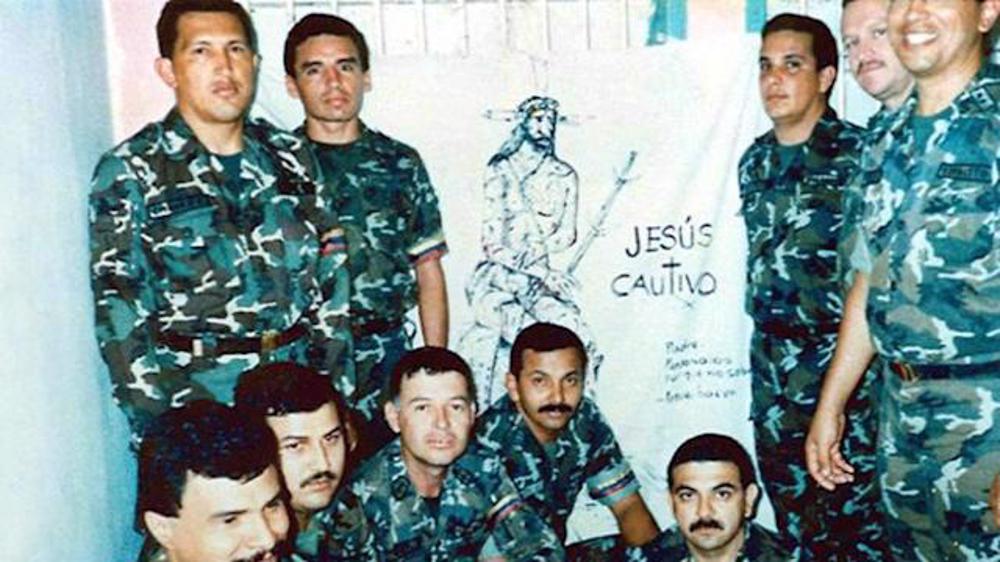
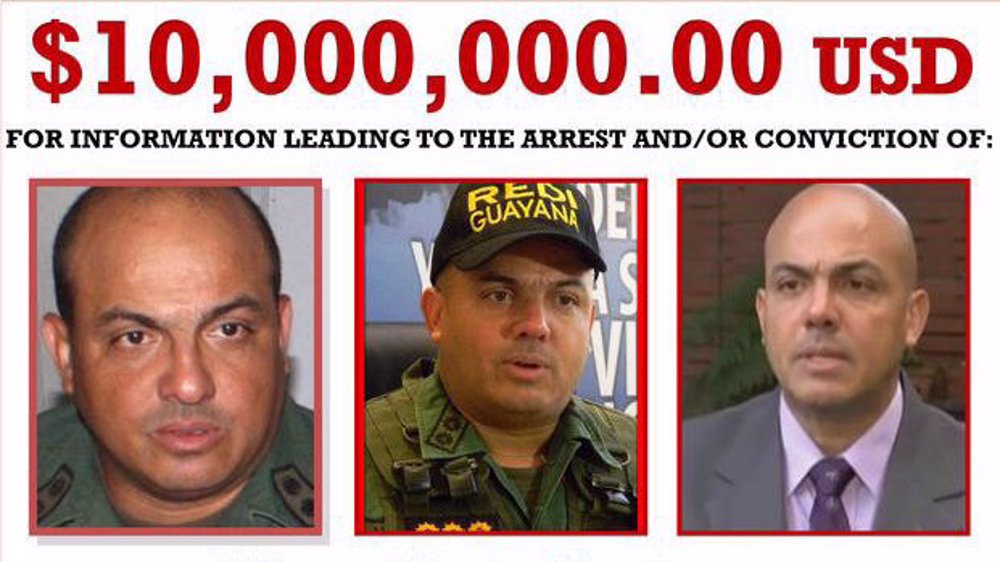
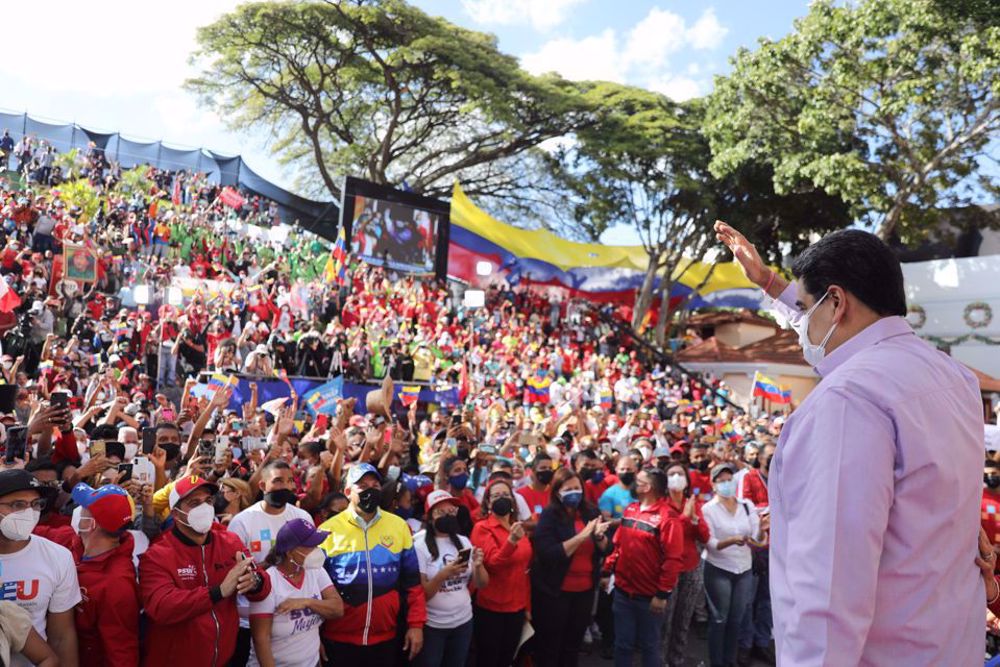
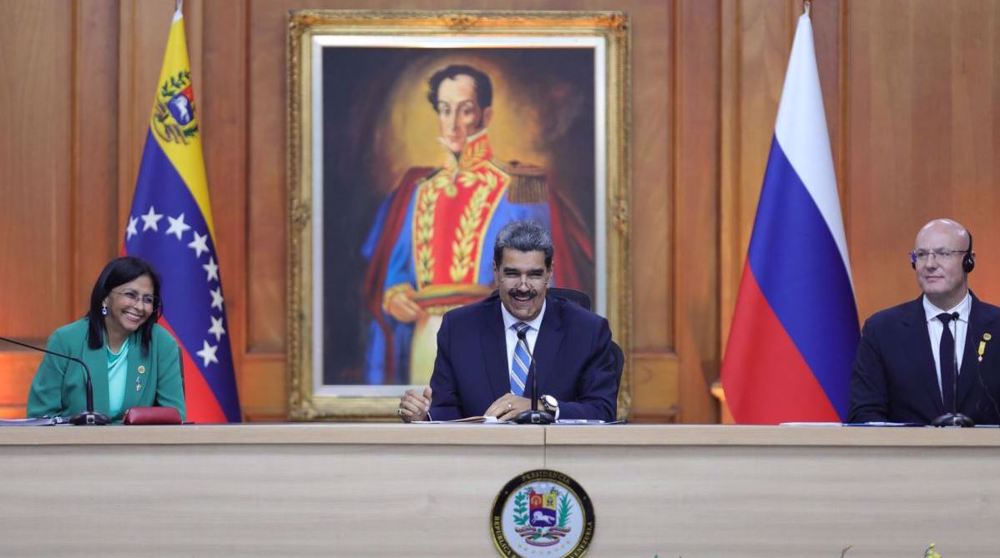
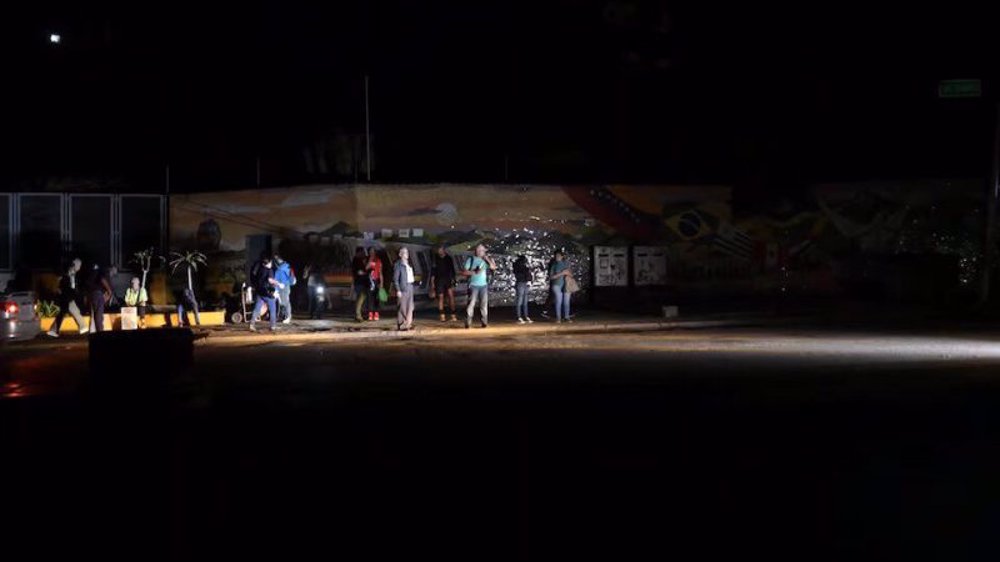
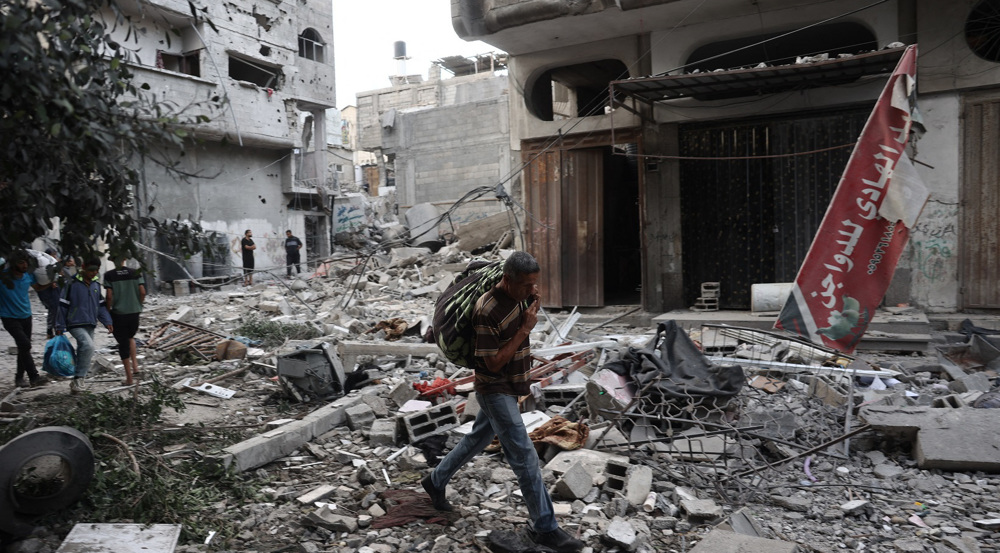



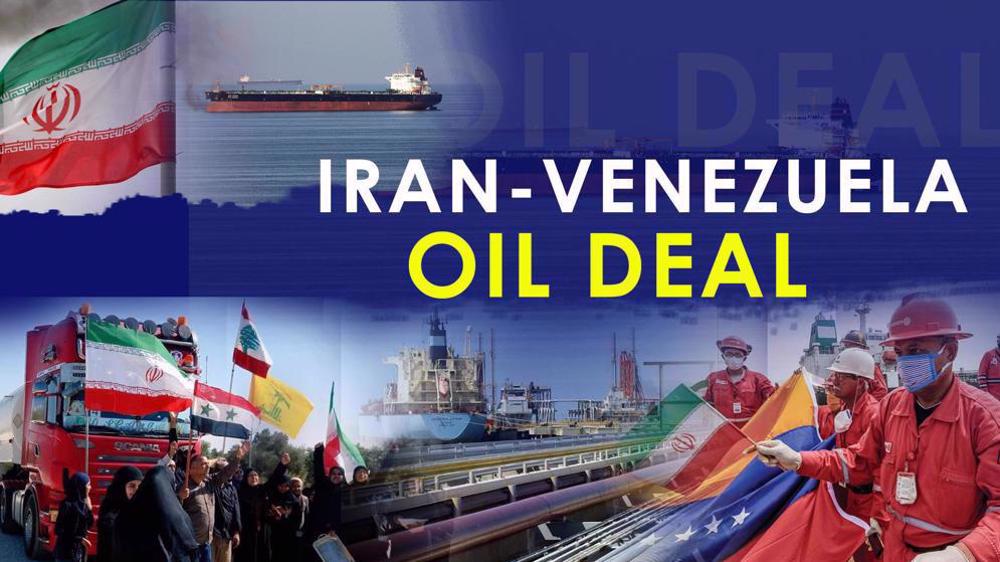
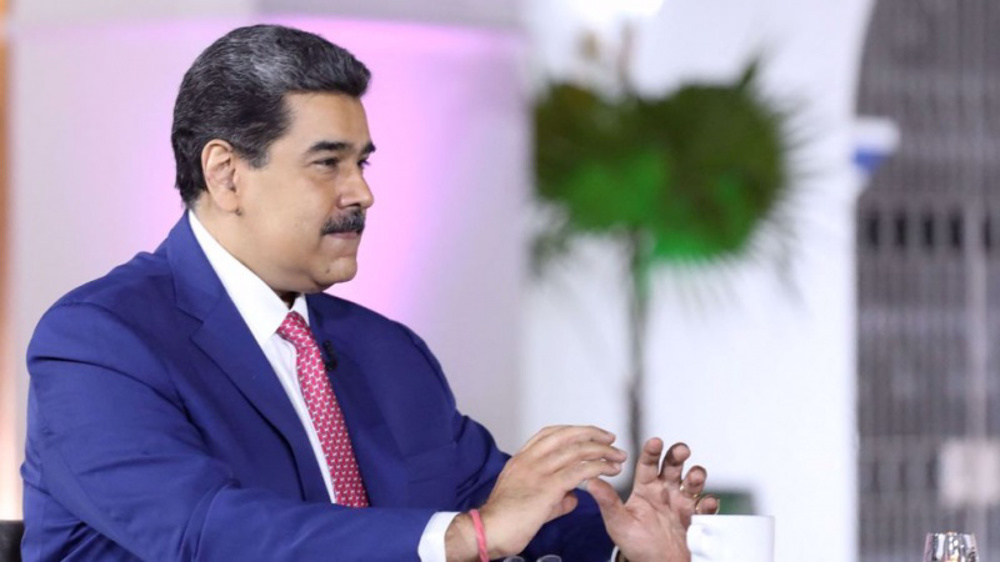
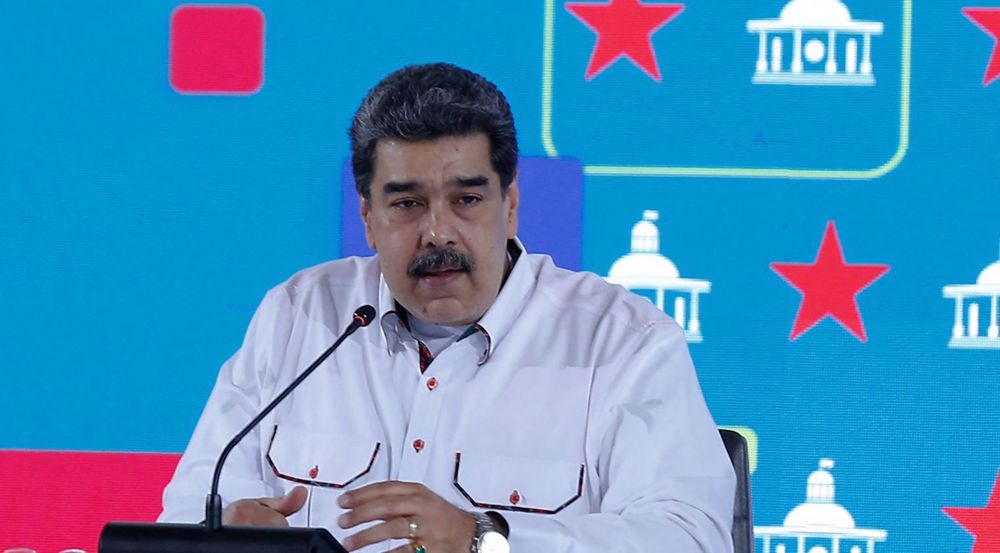

 This makes it easy to access the Press TV website
This makes it easy to access the Press TV website